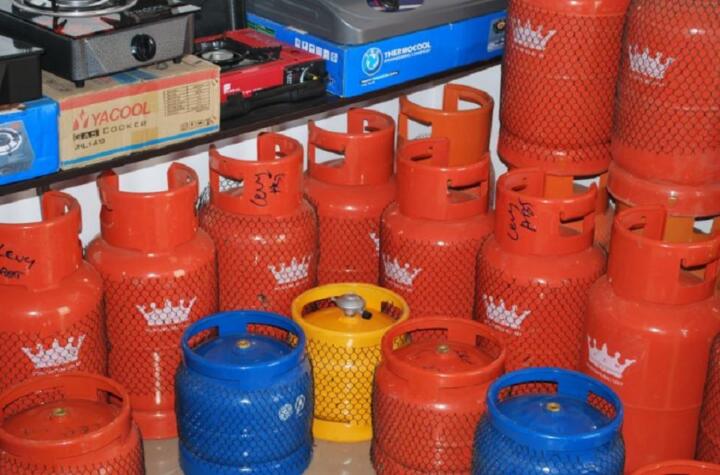The festive season, a time of joy, festivity, and celebration, is marked by two essential activities that define the spirit of the holidays: the art of culinary creation and the journeying of individuals over significant distances to be with their loved ones.
Traditionally, kitchens come alive with the preparation of various local and international dishes, creating a delightful culinary experience that is shared among family and friends. The aromatic blend of spices, the sizzle of pans, and the warmth of shared meals contribute to the festive ambiance that defines the yuletide season.
In parallel, this period witnesses extensive travel as people embark on journeys, bridging geographical gaps to reunite with their families and friends. The spirit of togetherness becomes palpable as individuals navigate significant distances, overcoming the barriers that separate them from the ones they hold dear.

However, the feasibility of both these cherished activities is inextricably linked to the costs associated with fuel (PMS) for transportation and cooking gas (LPG) for culinary purposes. Recent developments in the petroleum industry foretell a historic surge in fuel prices, casting a shadow over the joyous atmosphere of the upcoming Christmas celebrations.
The deregulation of the downstream sector in June marked a turning point, leading to a notable escalation in fuel (PMS) prices. According to the latest PMS price watch by Infostride News (formerly Nairametrics), the average retail price of PMS skyrocketed by 220.49% from November 2022 to November 2023.
A survey of petrol stations in Lagos, as reported by Infostride News, indicates that the price of 1 litre of fuel (PMS) ranges between N600 and N650—setting a record in the nation’s history. This unprecedented surge has effectively made transportation as expensive as ever, as highlighted by the latest Infostride News transport fare watch, revealing a 61.27% year-on-year increase in inter-city bus journey costs between November 2022 and November 2023.
Reflecting on the cost of PMS in recent Decembers, it becomes evident that Nigerians are poised for the most expensive Christmas in recent memory. In December 2022, the average price Nigerians paid for petrol was N206.19k per litre, marking a staggering 315.2% increase compared to the current average retail price of N650 per litre.
Delving further into December 2021, the average retail price of PMS was N165.77k, indicating that over two years, Nigerians experienced a 392.10% increase in petrol costs during the yuletide. The removal of the fuel subsidy by President Bola Tinubu on his inauguration is identified as the primary driver behind this substantial increase in fuel prices.
To alleviate the economic burden on citizens, the federal government has introduced measures such as a 50% discount for major inter-state travel routes during the Yuletide and free train rides. However, the effectiveness of these measures raises questions, with concerns emerging about the coverage of the population and the seamless logistics of implementing such initiatives for a significant section of travelers.
Shifting the focus to cooking gas prices, it’s anticipated that Nigerians will incur higher expenses on cooking gas this Christmas compared to the previous year. Despite this, the disparity in cost is not as stark as that of PMS.
Infostride News reports that the price of 1kg cooking gas (LPG) fluctuates between N950 and N1,100 in cooking gas stations across Lagos. The latest cooking gas (LPG) price watch from the National Bureau of Statistics (NBS) reveals that the average cost of 5kg of cooking gas is N4,562.51, translating to an average of N912.50k per kilogram of LPG nationwide for November 2023.
Examining the trajectory of cooking gas prices from 2021, there has been a significant 153.2% increase in the price of cooking gas from December 2021 to December 2023. According to the NBS, the average price of cooking gas in December 2021 was N3594.81k for 5kg, equivalent to around N718 per kilogram.
A report by Infostride News unveils that the rise in the price of LPG is attributed to factors such as high demand, low local production, the naira-dollar exchange rate, and geopolitical events like the Russia-Ukraine war. The Chief Executive Officer (CEO) of the Nigerian Liquefied Natural Gas (NLNG), Dr. Philip Mshelbila, acknowledged in August that Nigeria can only meet 40% of the total LPG demand, with the remaining 60% being imported.
Additionally, the unification of the exchange rate market in June resulted in the naira losing over 50% of its value on the Nigerian Autonomous Foreign Exchange Market (NAFEM), negatively impacting the cost of cooking gas for end users.
In the face of these economic challenges, the inevitable reality is that whether one is traveling or not for the Yuletide, the need for sustenance remains. With the state of electricity supply across the country, there is a likelihood of relying on generators for comfort. This confluence of factors ensures that Nigerians cannot escape the reality of experiencing the most expensive Christmas in recent times.
Support InfoStride News' Credible Journalism: Only credible journalism can guarantee a fair, accountable and transparent society, including democracy and government. It involves a lot of efforts and money. We need your support. Click here to Donate
